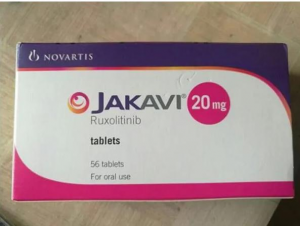
The treatment strategy for primary myelofibrosis (PMF) is based on risk stratification. Due to the variety of clinical manifestations and issues to be addressed in PMF patients, treatment strategies need to take into account the patient's disease and clinical needs. Initial treatment with ruxolitinib (Jakavi/Jakafi) in patients with a large spleen showed significant spleen reduction and was independent of driver mutation status. The greater magnitude of spleen reduction suggests a better prognosis. In low-risk patients with no clinically significant disease, they can be observed or entered into clinical trials, with repeat assessments every 3-6 months. Ruxolitinib (Jakavi/Jakafi) drug therapy can be initiated in low- or intermediate-risk-1 patients who present with splenomegaly and/or clinical disease, according to NCCN treatment guidelines.
For intermediate-risk-2 or high-risk patients, allogeneic HSCT is preferred. If transplantation is not available, ruxolitinib (Jakavi/Jakafi) is recommended as a first-line treatment option or to enter clinical trials. Ruxolitinib (Jakavi/Jakafi) is the only currently approved drug worldwide that targets the overactive JAK/STAT pathway, the pathogenesis of MF. Two studies published in the New England Journal and the Journal of Leukemia & Lymphoma suggest that ruxolitinib (Jakavi/Jakafi) may significantly reduce the disease and improve quality of life in patients with PMF. In intermediate-risk-2 and high-risk MF patients, ruxolitinib (Jakavi/Jakafi) was able to shrink the spleen, improve disease, improve survival, and improve bone marrow pathology, meeting the primary goals of disease management.
PMF has an annual incidence probability of 0.5-1.5/100,000 and has the worst prognosis of all MPNs. PMF is characterized by myelofibrosis and extramedullary hematopoiesis. In PMF, the bone marrow fibroblasts are not derived from abnormal clones. Approximately one-third of patients with PMF have no symptoms at the time of diagnosis. Complaints include significant fatigue, anemia, abdominal discomfort, diarrhea due to early satiety or splenomegaly, bleeding, weight loss, and peripheral edema. Ruxolitinib (Jakavi/Jakafi) was approved in August 2012 for the treatment of intermediate or high risk myelofibrosis, including primary myelofibrosis. The drug is currently available in more than 50 countries worldwide.

